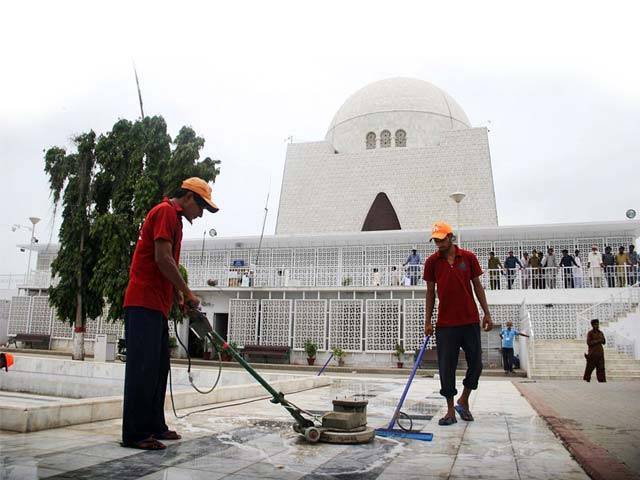How a common citizen uses RTI law for the implementation of labour rights

Islamabad: “You are the embodiment of the information you choose to accept and act upon. To change your circumstances you need to change your thinking and subsequent actions”, says Adlin Cinclair, a practitioner of the Right to Information (RTI) law.
Naeem Sadiq, a labourer rights activist based in Karachi, is on his way to get and use the information for the laborers and other citizens rights.
“A common man has power to know about his/her basic rights if he/she knows about laws,” Sadiq said. The right activist is practicing the RTI law to uplift the standard of marginalized communities of the society.
Sadiq writes information requests to different public sector departments and asks for information about the salary paid to the janitorial staff, security guard and gardeners performing duties in different public bodies.
Recently, the salary package of security guards and sanitary workers performing duties at Mazar-e-Quaid Karachi was increased by the concerned body from Rs9,000 per month to Rs17,500 per month after Sadiq raised the issue through the Right to Information law.
Similarly, duty hours of the security guards serving at Mazar-e-Quaid were reduced from 12 hours to 8 hours along with an increase of Rs5,500 per month in their salaries as well.
Naeem Sadiq told The Reporters that in December, 2020, he had asked the management of Mazar-e-Quaid to provide information about the salary paid to the janitorial staff, security guards and gardeners performing duties at the Mazar-e-Quaid, they used different techniques to avoid sharing the requested information, but later after the directions from Pakistan Information Commission they shared the information.
The information shared by the QAMMB revealed that these employees were hired by the contractor and are paid below the minimum wage set by the Government.
In March this year, the Sindh High Court issued an another similar case against the Cantonment Boards, Karachi where the sanitary workers were paid less than minimum wage, the court decided that it is the responsibility of the primary organization (public bodies) to make sure protection of all rights of employees, performing duties there even if they are hired by the contractors, he added.
Sadiq said when he raised this issue, salary packages of the sanitary workers performing duties at Jinnah International Airport, Cantonment Board Karachi and now at Quaid-e-Azam Mazar has been raised up to the minimum wage set by the Government.
He further added that not only will the salary of employees working at Mazar-e-Quaid rise up to the minimum wage, but they are also registered to the EOBI and Social Welfare Department.
Replying to a question regarding useful practice of the Right to Information law, he said, the law has played an important role in these cases as all this information regarding salary paid to the employees, copies of the contract signed with the contractors and other information was available through the RTI law.
While appreciating the performance of the Pakistan Information Commission, the labour rights activist said currently there are four information commissions in the country, but unfortunately all excluding the Pakistan Information Commission are dysfunctional.
Sadiq further said that the Sindh Information Commission has not passed even a single order against the government in their whole tenure, similarly, complaints in Khyber-Pakhtunkhwa and Punjab information Commissions also took years to get any result.
“We are common citizens without having any support from any political party or from administration, even then our struggle has contributed some good change in the lives of the marginalized communities, which shows that common man also has power if he knows the laws,” Sadiq said.





